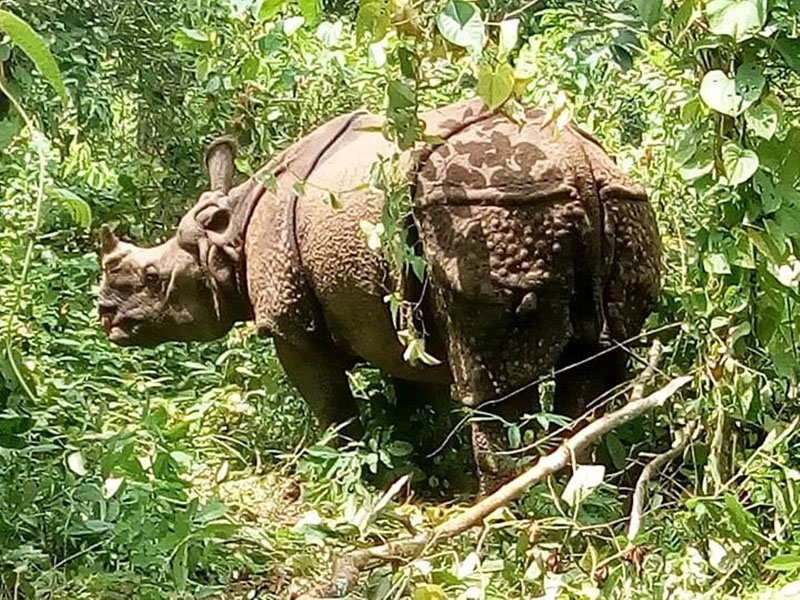Wildlife poaching on the rise
Kathmandu, July 11
Racketeers are found to be using Kathmandu as a transit for smuggling wildlife body parts to foreign countries, mainly China.
As the end of the current fiscal is just a few days away, police said they had arrested 107 suspects, including 10 foreigners, with body parts of 47 endangered animals in Kathmandu in 2016-17, the highest in the past five fiscals. The number of people arrested with animal body parts in the fiscals 2015-16, 2015-14, 2014-15 and 2013-14 stood at 105, 71, 93 and 64 respectively.
The wild animals most sought-after by poachers and smugglers include red panda, leopard, deer and Eurasian eagle. Police recovered nine red panda hides, six leopard skins, six deer skins, four live Eurasian eagles, four live pangolins and their scales, musk pods, bear biles, tiger skins and bones, live turtles, rare birds, otter skin, rhino horns and ivories, among others.
Police said international drug smugglers were found to be using Kathmandu as a transit for smuggling wildlife body parts.
“Our investigation shows that local poachers usually come to Kathmandu with wildlife body parts in search of prospective clients and sell them to racketeers, who eventually smuggle the contraband into foreign countries, especially China,” said a senior police official.
Any person arrested with body parts of endangered wild animals is handed over the concerned district forest office for legal action.
DFO is the only authorised agency to prosecute wildlife poachers and smugglers under the National Parks and Wildlife Conservation Act, 1973. The official said cases of poaching red pandas, and sale, possession and smuggling of their skin are on the rise. As many as 53 red panda hides were seized in the last three years alone, a testimony to the increased threat to wild animals.
Red panda, called ‘habre’ in Nepali, is an endangered animal whereas trade in its body parts is illegal under the prevailing laws as well as the Convention on International Trade in Endangered Species of Wild Fauna and Flora.
According to the Department of National Parks and Wildlife Conservation, Nepal is home to around two per cent of the global population of red panda amounting approximately to 300 individuals. Their numbers are dwindling due to all-pervasive human pressure on their natural habitat and poaching.
Police said red panda hides and body parts are usually smuggled to China and Myanmar for their supposed medicinal qualities and aesthetic use. Poachers have been found selling red panda hide for Rs 200,000 to 600,000 depending on their clients.
Similarly, pangolin scales fetch around 2,500 US Dollars per kg in the international market. Pangolin scales and body parts of other wild animals are in high demand in Asian markets as they are used in manufacturing traditional Chinese medicine, handicraft and decorative items.
Anyone involved in the trade of protected species can be slapped with a fine up to Rs 100,000 and a jail term of five to 15 years as per the existing laws.






